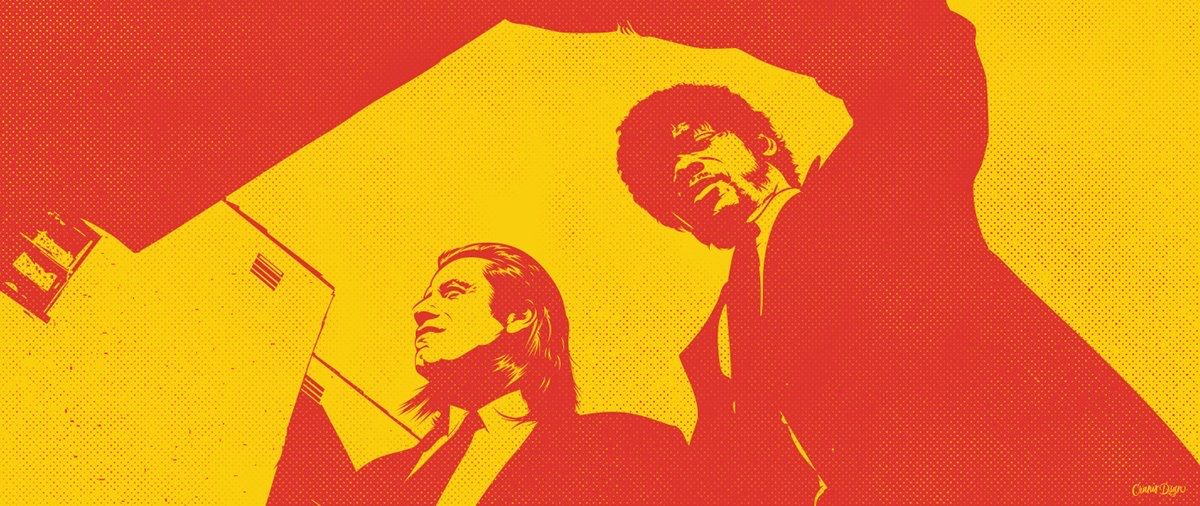The Joke is a 1969 Czechoslovakian movie directed by Jaromil Jires.

The Joke tells the story of Ludvik Jahn, a University student who is expelled from the Communist Party after writing a politically incorrect note. Fifteen years later, Ludvik returns to exact revenge on those who voted for his dismissal.
I don’t normally delve into the background of the movies I review – simply because I don’t want to rehash Wikipedia research. However, the context of this movie is important. Released in 1968 during The Prague Spring, The Joke was popular in Czechoslovakian theaters before being banned for twenty years. During this time, Soviet Union troops invaded the country and crushed the uprising.
Jires uses this repressive backdrop to present a parable on the futility of authoritarianism – and in a sense, the folly of individuals opposing such systems.
The overarching theme of The Joke implies that the Communist Party’s rhetoric ultimately proves its own weakness and dysfunction. A joke is a threat to the party’s ideals and treated as treason. Individual thought collides with the collective group-think, which craters the Socialist vision.
In some respects, The Joke lobs these arguments in a heavy-handed manner. Ludvik’s letters to a politically-involved girl he’s chasing are turned into the state. After a sham trial, he’s expelled from his University and the Party. Eventually, he finds himself in the military, followed by a stint in prison and then endures three years in the mines.

He reemerges fifteen years later to gain a measure of revenge on those who derailed his life. Clearly, Ludvik has been scarred but it’s not entirely evident how his personality has changed. He’s a dour, smarmy, cynical, self-professed “skirt chaser” as both a young student and middle-aged man.
In other words, it’s hard to completely empathize with Ludvik. But, perhaps this is intentional. He is the embodiment of the flawed individual rallying against an even more flawed system.
He admits that he’s only sexually interested in the girl he’s chasing – Marketa, who is enraptured with communist doctrine. He writes the joke to her, which she dutifully turns into the authorities. She later votes for his expulsion from the party. In retrospect, he laments losing her body.
Jires does a terrific job blending Ludvik’s flashbacks with his present. He follows a girl into a church and unwittingly becomes a guest at a baptism. During the ceremony, he relives his college trial. The scenes swirl together as his political life is destroyed, while several babies become indoctrinated.

This device continues as Ludvik runs into Jaroslav, his old bandmate. His band bursts into a joyful, uptempo number. Ludvik distances himself and immediately retreats to his arduous days in an Army prison camp. We learn of the tragic demise of fellow soldier Alexej, a loyalist whose father betrayed the party.
Ludvik’s plan of revenge focuses on the wife of Pavel, the student who led the investigation fifteen years prior. He wants to sleep with her to get back at Pavel. Helena becomes enamored with Ludvik’s sudden attention to her. There is an awkward, aggressive sex scene, where Ludvik repeatedly slaps Helena.
Afterward, he is conflicted as Helena reveals her and Pavel are essentially separated. Pavel appears later at a festival – now a suave intellectual with a 20-year old girlfriend. He has little interest in Helena and Ludvik’s plans of revenge are effectively dashed.

The ending of the movie spirals into dark comedy as Ludvik takes out his vengeance on Helena’s lovestruck assistant – after she tries to commit suicide by unwittingly swallowing a bottle of laxatives. It’s a funny ending but it’s apparent that Jires ran out of steam. Otherwise, the climax signals a deeper truth for Ludvik, who is essentially an unredeemable character.
Josef Somr is terrific as Ludvik – he carries the movie as its cynical voice. He is hardened and jaded, yet can infuse the role with a subtle earnestness. He brings a slight optimism and longing as a middle-aged man trying to reconfigure his past.
The scene stealers are Jana Ditetova’s Helena and Milos Rejchrt’s Alexej. Ditetova plays the repressed Helena to perfection – crafting a character that soaks up the forgotten ideals of love and youth, only for her hopes to be coldly dashed. Rejchrt is quietly effective as the physically damaged, yet staunch defender of Communist principles. The trigger for his demise feels more impactful compared with Ludvik’s empty journey.
The BEST – The Best Casting is No Casting
Ludvik recounts his past by slipping into flashbacks, where he’s a passive participant. The camera fixes on Ludvik, who isn’t there. It’s both a cost-saving device and clever narrative trick.
The BEST Part 2 – The Cheap Bed
This is a fun running gag that’s probably more a dig at shoddy Communist craftsmanship.
The BEST Part 3 – The Slow Relay Race
At the prison camp, Ludvik’s fellow soldiers stage a low-fi revolt that is a fun parallel to Great Escape-esque dramas.
The WORST – That Last 25 Minutes
It becomes apparent that Ludvik isn’t going to exact revenge and his futility becomes symbolic of the Communist oppression that has stained his life. However, we learn this with a lot of time left on the clock. The Joke wobbles to a funny but incoherent finish.
FOX FORCE FIVE RATING – 3.75/5
The historical uniqueness of The Joke elevates its value. Its cultural and political impact was significant enough that the movie was banned. Creatively, the narrative structure is interesting and the acting is strong. Despite the final few scenes losing direction, The Joke is worth a watch.

2 thoughts on “The Joke”
Comments are closed.